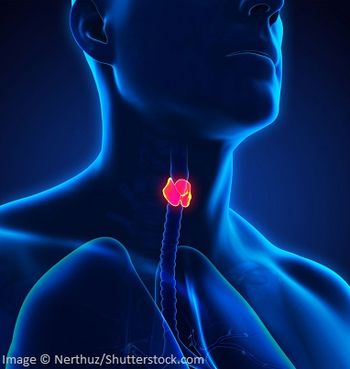
Thyroid Cancer Incidence Leveling Off?
Despite a large increase in the diagnosis of thyroid cancer during the last few decades, a new study indicates that thyroid cancer incidence may be leveling off.
Despite a large increase in the diagnosis of thyroid cancer during the last few decades, a new study indicates that thyroid cancer incidence may be leveling off.
The data is published as a research letter in JAMA Otolaryngology-Head & Neck Surgery
“The incidence of thyroid cancer in the United States has tripled in 30 years, rising rapidly since the 1990s. This substantial increase, chiefly comprising small papillary cancers, has been attributed to widespread diagnosis of subclinical disease,” wrote researchers led by Luc G. T. Morris, MD, MSc, of the Memorial Sloan Kettering Cancer Center in New York. “The rapidly rising incidence of thyroid cancer in the United States has been recognized as an ‘epidemic of diagnosis’ more than an epidemic of disease. Acknowledging this, practice guidelines are becoming increasingly nuanced in recommendations about which nodules to biopsy.”
According to the article, the rates of diagnosis of thyroid cancer between 2010 and 2012 have stabilized, suggesting that clinical practices are changing as well.
The researchers analyzed the incidence of thyroid carcinoma taken from the SEER registry of the National Cancer Institute. Data were included from the period of 1983 to 2012 and age-adjusted to the population of the United States in 2000.
The analysis showed an annual percentage increase of 3% from 1988 to 1998. This incidence increased to 6.7% from 1998 to 2009, and then leveled off at 1.75% from 2010 to 2012.
According to the study, the stabilized rate of thyroid cancer seen from 2010 to 2012 remained even after stratifying tumors by size.
“The next few years will determine if this stabilization is durable,” the researchers wrote. “These data cannot provide causal evidence of a link between trends in the incidence of thyroid cancer and specific clinical practice guidelines. Nevertheless, the data suggest that changing clinical practices are responsible for the slowing increase in the reported incidence of thyroid cancer.”
Newsletter
Stay up to date on recent advances in the multidisciplinary approach to cancer.





































